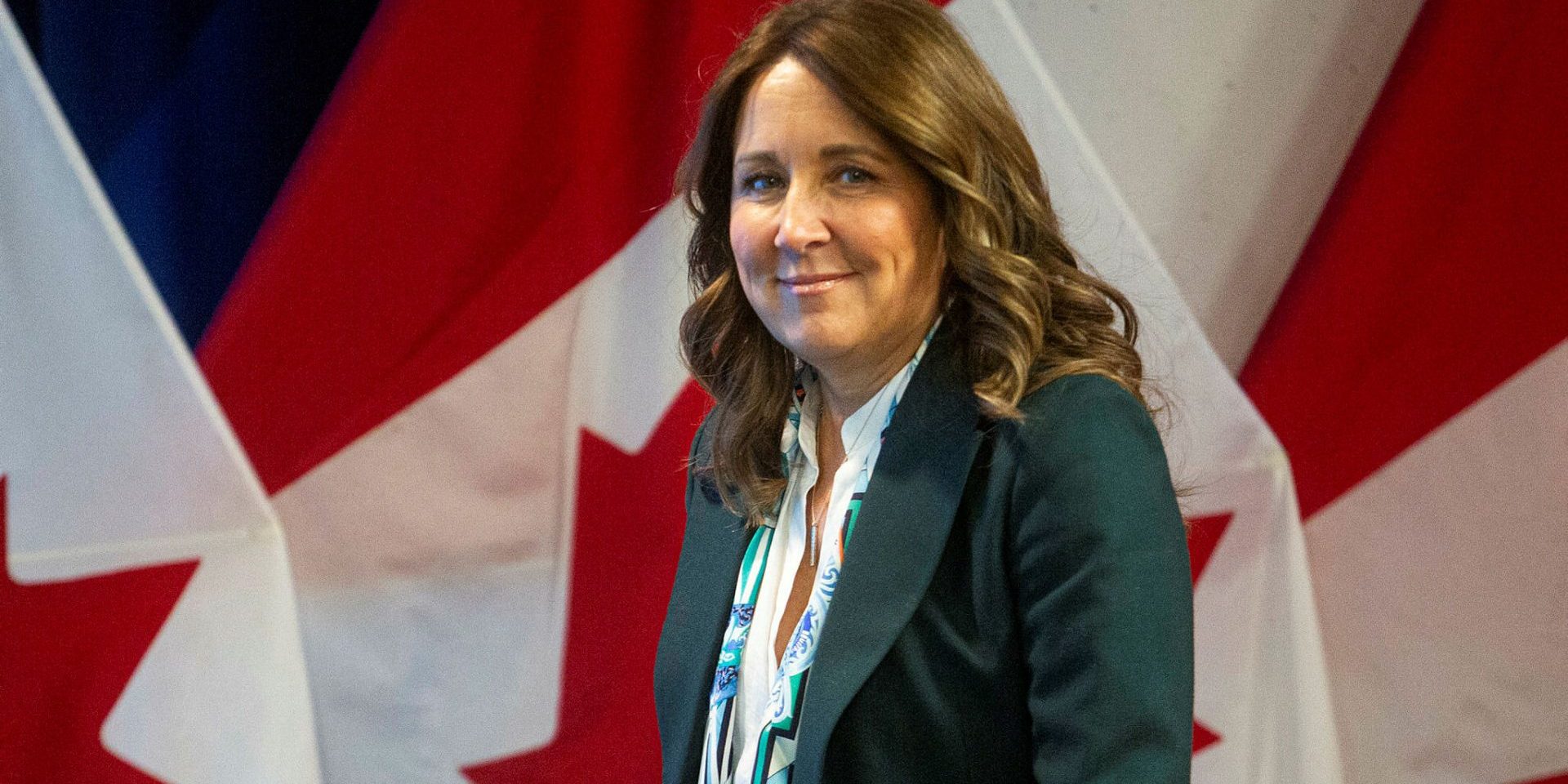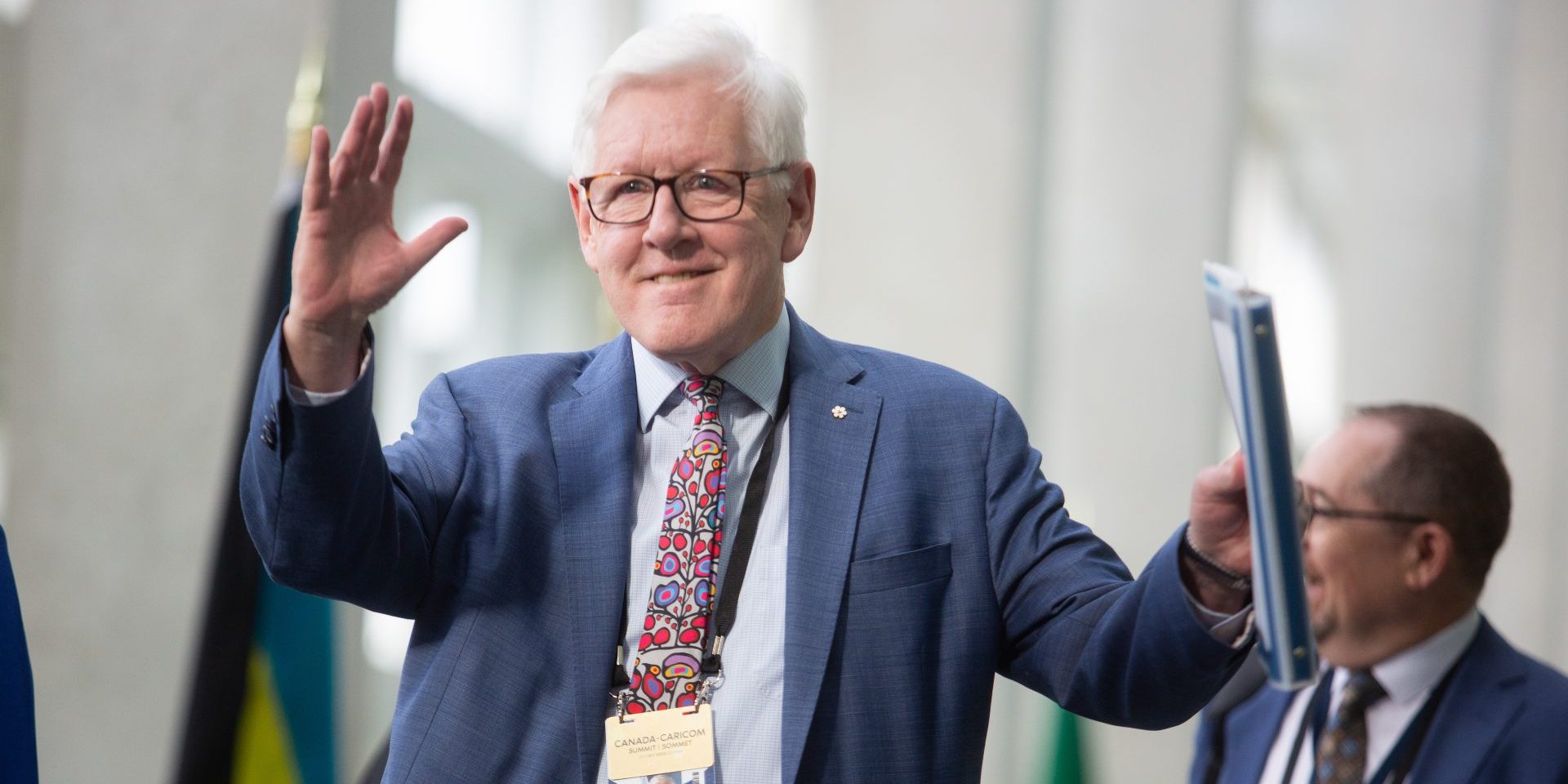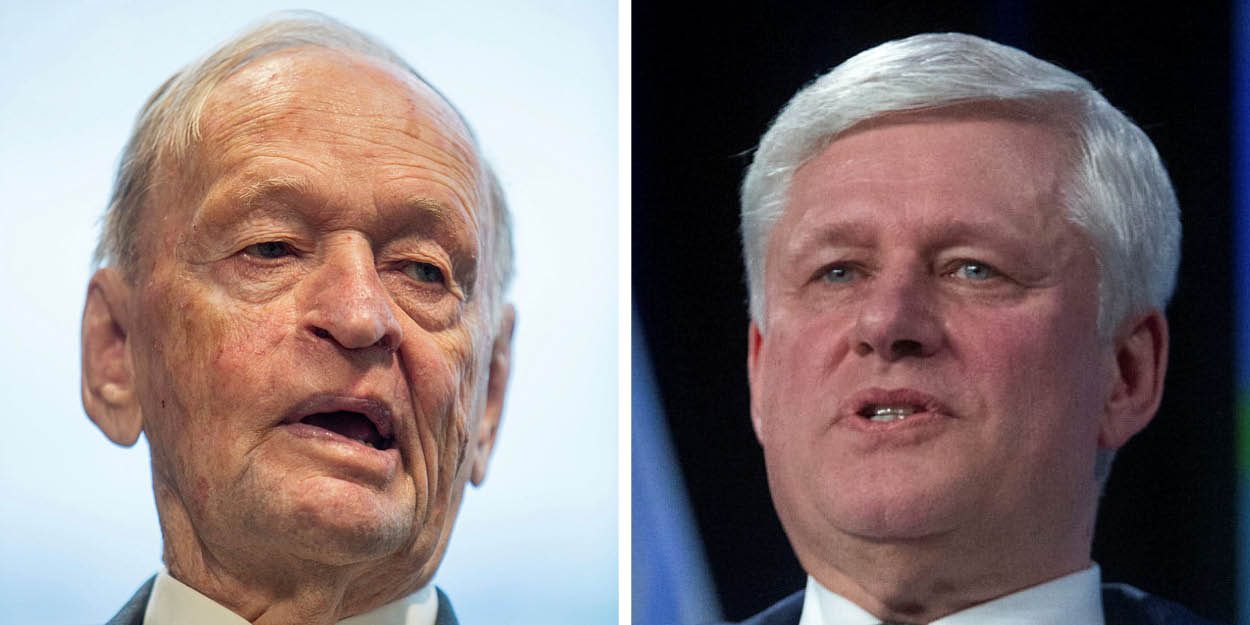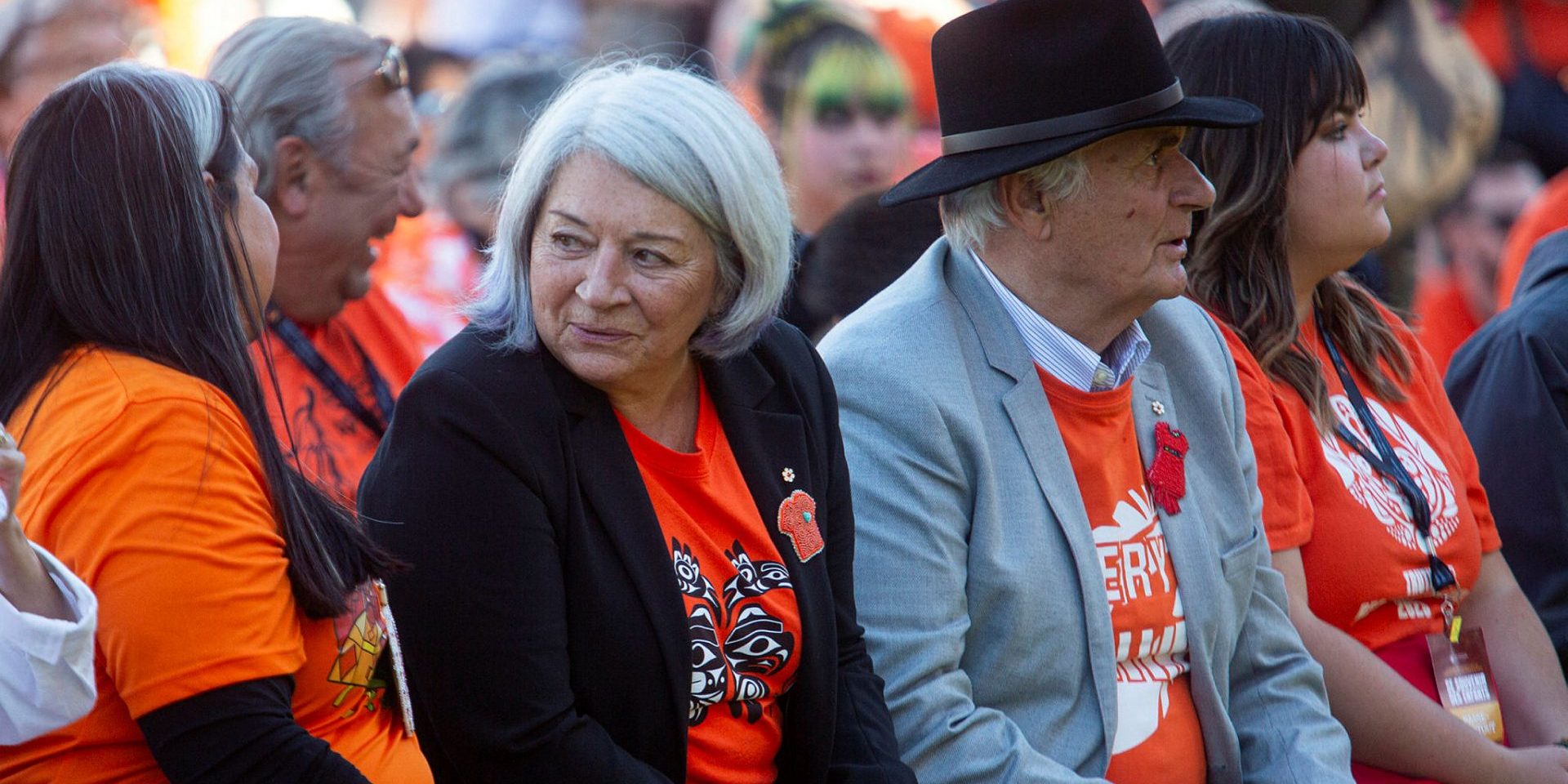Diplomatic Circles
‘I’ve had to run to keep up’: U.K. envoy trumpets ‘new energy’ in Canadian relationship, but questions loom over trade talks
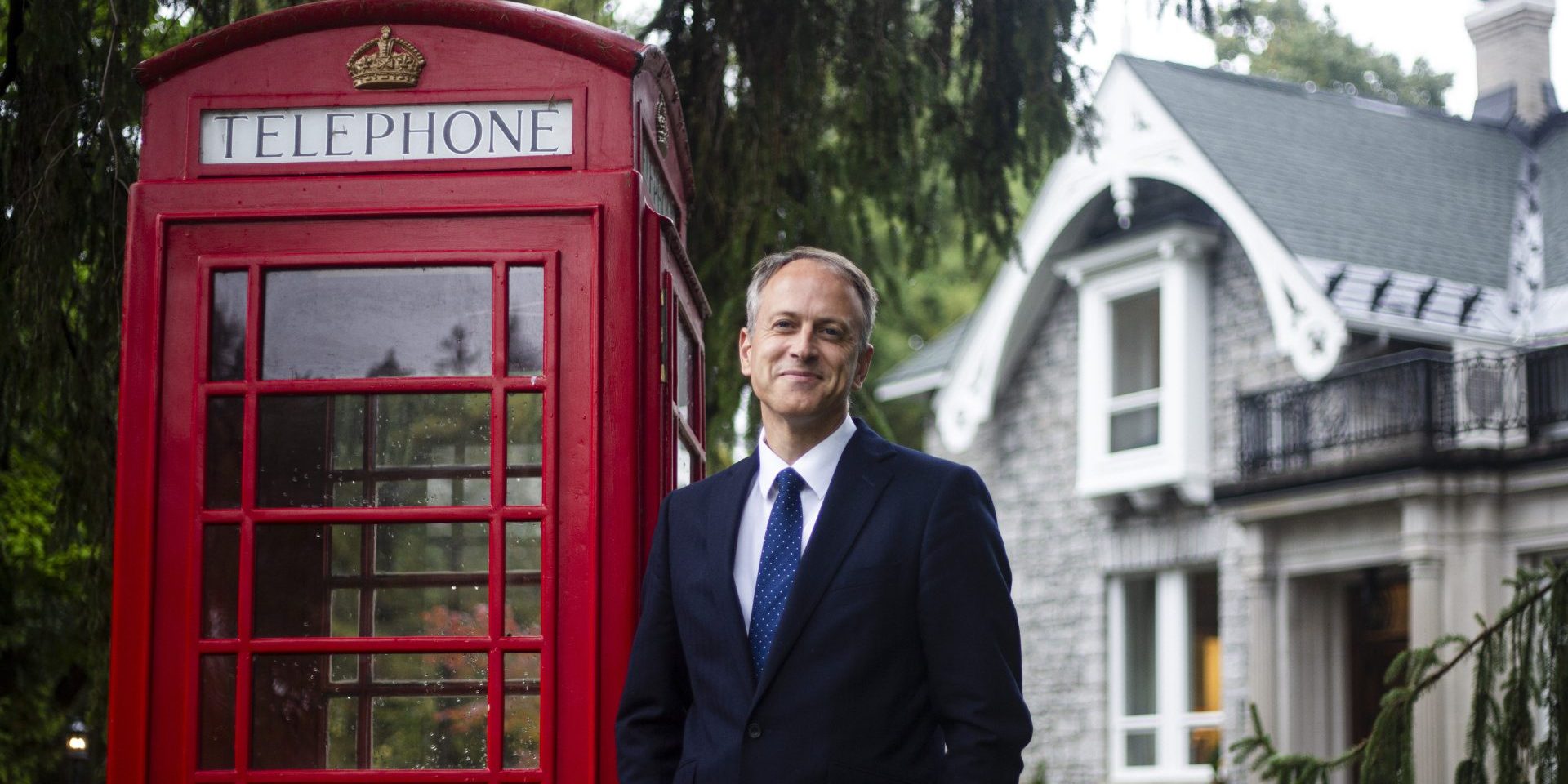
Seven months into his job as the United Kingdom’s top diplomat in Canada, Rob Tinline has already been through a sea change in Canadian politics.
Just 15 days after Tinline presented his letter of introduction to Justin Trudeau, the outgoing prime minister’s nearly decade in charge had ended.
“It feels like there’s a new energy in the relationship,” said Tinline during an interview with The Hill Times from his interim residence on Lisgar Road.
“A lot of that comes from the fact that Canada was at the end of 10 years of a Trudeau government. The U.K. was coming to the end of 14 years—coalition at the start—of Conservative government,” he said.
He said that the change of governments has brought “new energy” on both sides of the Atlantic, with new mandates with two-, three-, or four-year horizons.
“What can we do over that period of time?” Tinline asked of the moment.
Since becoming prime minister, Mark Carney has made two visits to the U.K.—most recently from Sept. 26-28. U.K. Prime Minister Keir Starmer was in Ottawa ahead of the G7 Leaders’ Summit this past June.
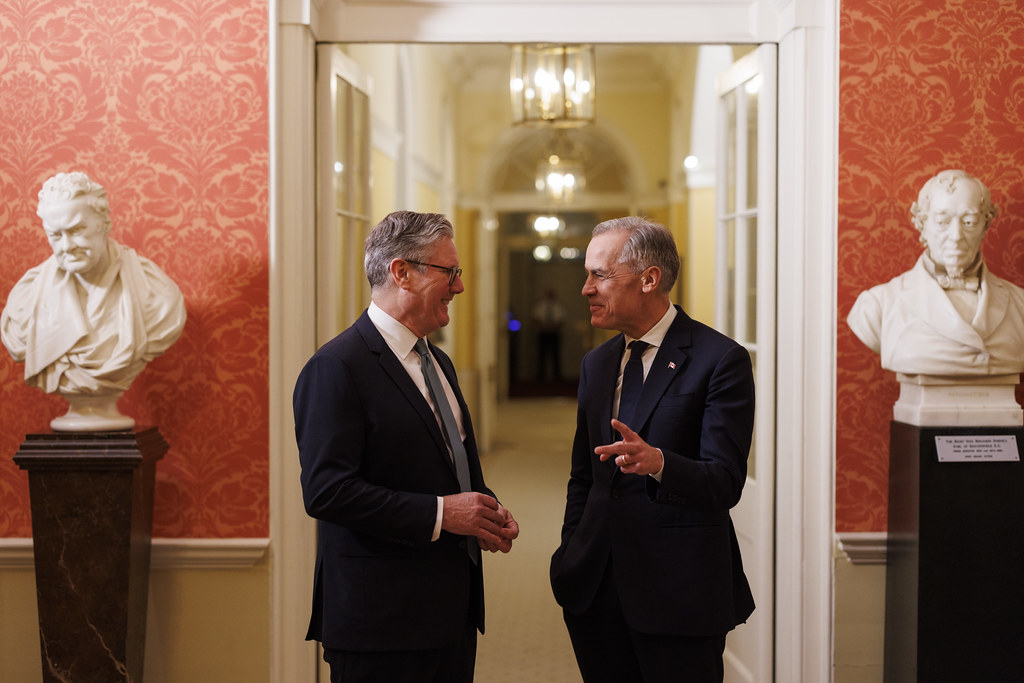
Any “new energy” wasn’t seemingly apparent in the early days of Tinline’s tenure.
Carney had criticized Starmer for inviting United States President Donald Trump for a second state visit amid threats of absorbing Canada as a “51st” state. Starmer ruffled some Canadian feathers for failing to condemn Trump’s annexation rhetoric, seemingly taking a more fawning approach to dealing with Trump—a technique increasingly mirrored by Carney as of late.
Despite an all-encompassing focus on Trump and dealing with the Americans, Tinline said that hasn’t blunted any attempts to advance the Canada-U.K. relationship, noting the frequency of senior British officials being in Canada since the start of the year—in part owing to Canada’s current chairship of the G7 presidency.
“The G7 has provided a focus for an intensity of British ministerial time in Canada that you haven’t seen for many a year,” he said.
“I haven’t found that I’ve had to work to keep the focus on Canada,” he said. “If anything, I’ve had to run to keep up.”
Tinline said as a member of the foreign service, any diplomat wants to be where the action is.
“This is why you join the foreign service: to go to interesting places, at interesting times, do interesting things that aren’t available to most people,” he said.
The posting in Ottawa is one that Tinline sought out. Coming across the Atlantic Ocean with a national security background, he has held postings during consequential geopolitical shifts of the last two decades.
He was deputy consul general in Basra, Iraq, during the surge as the U.S.’s George W. Bush administration increased troop levels to address insurgents.
“Basra was clearly an absolutely fascinating experience at a really difficult time,” he said.
Tinline was also the U.K.’s deputy head of mission to the European Union just before his country went through its Brexit referendum in 2016.
Prior to coming to Ottawa, he was the foreign office’s director for the Americas, which saw him play a role in the commonwealth’s first coronation in 70 years.
“I was involved in welcoming all the heads of states and governments from across the Americas,” he said. “You got to be part of something else really special that most people don’t get to be part of.”
Beef over cheese and meat
Still up in the air is to what extent the “new energy” in the Canada-U.K. bilateral relationship will reset trade negotiations.
The talks have been paused by London since January 2024 due to complaints over a lack of progress in allowing access for U.K. cheese to the Canadian market.
Canada-U.K. trade is governed by the Canada-U.K. Trade Continuity Agreement (TCA), which carried over much of the provisions that London had when it was a member of the EU and could access the Canada-EU Comprehensive Economic and Trade Agreement.
The TCA contained a side letter that Canada and the U.K would “endeavour to reach an arrangement on cheese” by the end of June 2023—that never occurred. The pact also contained a provision to “strive” to finalize a follow-on comprehensive trade deal by April 2024, which also never happened.
“Trade negotiations are always tough negotiations,” said Tinline, but remarked that there is a trade deal in place, and that the U.K. is the latest country to join Canada’s Pacific Rim trade deal.
Carney had previously pledged to table legislation this fall for London’s accession to the Comprehensive and Progressive Agreement for Trans-Pacific Partnership (CPTPP). A protocol was tabled on Sept. 18, and there has to be a waiting period of 21 sitting days before implementation legislation is introduced.
The U.K. is already considered a member of the CPTPP as half of the pact’s members have ratified London’s accession. For the pact to apply between Canada and the U.K., it has to pass the Canadian Parliament.
Asked if he thought the legislative process would be a smooth one, Tinline said that is up to Parliament to decide.
Beyond the cheese issue, one of the main beefs in the Canada-U.K. trading relationship has been over meat and Canadian food safety requirements not being accepted as sufficient by British authorities.
Canadian meat exporters have called for the U.K.’s CPTPP accession to be thwarted until such changes are made.
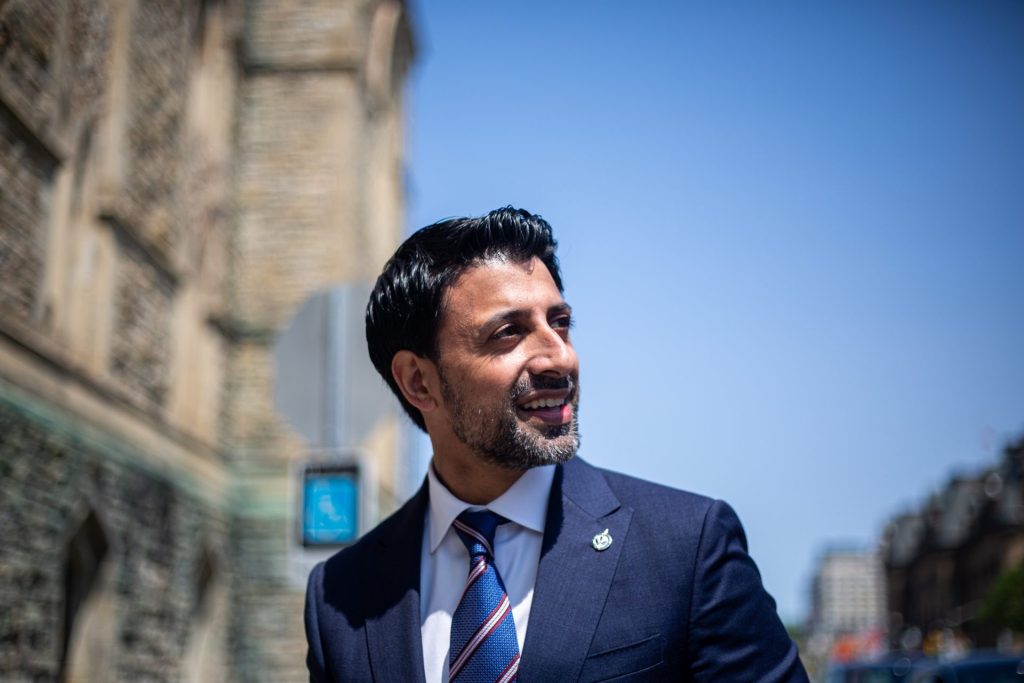
There is seemingly little willingness on either side to come to a compromise on the cheese or meat issues. A resolution to the cheese dispute has only been made more difficult as Parliament recently passed a Bloc Québécois bill that made it unlawful for negotiators to negotiate away additional supply management access in trade talks.
Tinline said that Carney and Starmer agreed in June to have officials look into the trading relationship.
“They asked for a report back in six months—six months is in December. So that process is happening to look at what we can and should do together,” he said.
Asked about the lack of willingness to compromise on the cheese and meat issues, Tinline said that is what the officials are thinking about, remarking that there are also many other issues where trade can be expanded, including on digital trade.
“So the conversation needs to report back to the prime ministers on how you seize opportunities, potentially deal with where we disagree, and what the best route forward for that is that works for both countries,” he said.
“I’m not going to predict where we will come out,” he said. “But seizing the opportunities to build U.K.-Canada trade further and break down barriers is something where we need to keep the focus on alongside the areas where we’ve got differences.”
Asked if cheese could be left off the table, the high commissioner said he wouldn’t get into what may or may not happen.
Keeping a two-state solution alive
Tinline said that the recent recognition of the Palestinian state is an attempt by a number of countries to keep the prospect of a two-state solution alive.
“The fact that we made the announcement at the same time clearly isn’t a coincidence,” he said. “Clearly, we talk about this together with the Australians, with the French, obviously with the Americans, and a whole range of other countries.”
He noted that Israeli hostages must be released immediately, and that Hamas cannot play a role in Palestine’s future—conditions shared by Canada in recognizing Palestine.
“These are things that are pretty broadly shared amongst like-minded countries,” he said.
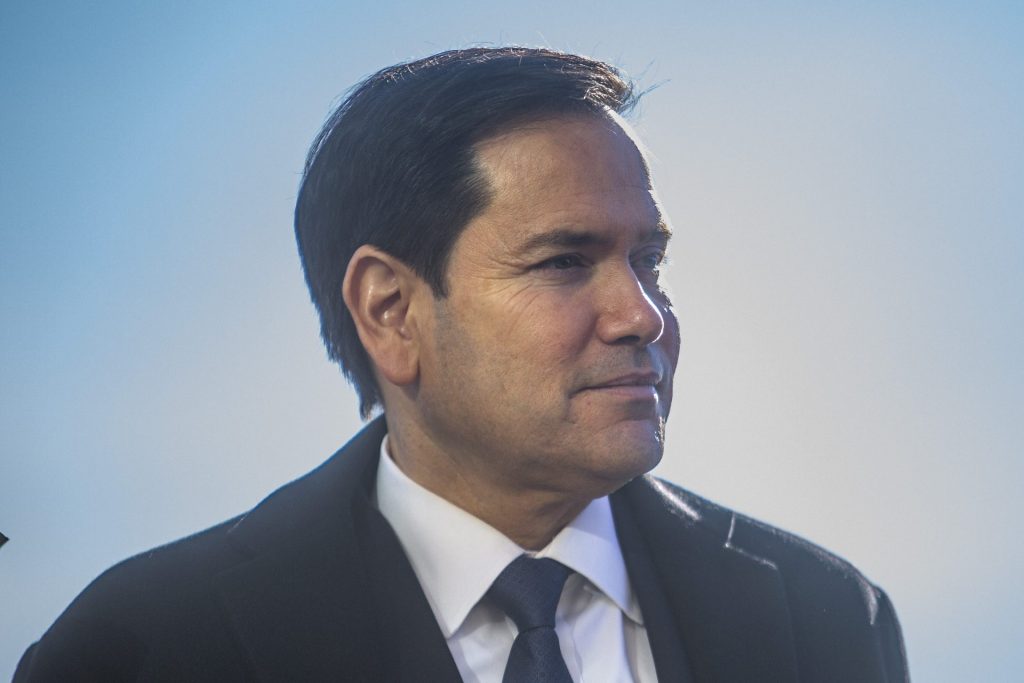
“What you saw was a set of countries coming together [at the UN General Assembly] and saying, ‘Actually, if we are going to keep a prospect of a two-state solution alive, we need to do something differently and recognition was part of that.”
U.S. Secretary of State Marco Rubio described the recognition as a “vanity project” for world leaders who want to be relevant.
Asked if the recognition would stunt the work of the G7—as Rubio and other Group of Seven top diplomats are set to reconvene in Canada later this fall—Tinline said that there are things the body will disagree on, and they will talk those issues through.
“That’s part of the value of the meeting,” he said, remarking that it offers countries the opportunity to sit down and explain why they took certain positions even if it ran counter to the policy of another.
nmoss@hilltimes.com
The Hill Times






 LICENSING
LICENSING PODCAST
PODCAST ALERTS
ALERTS